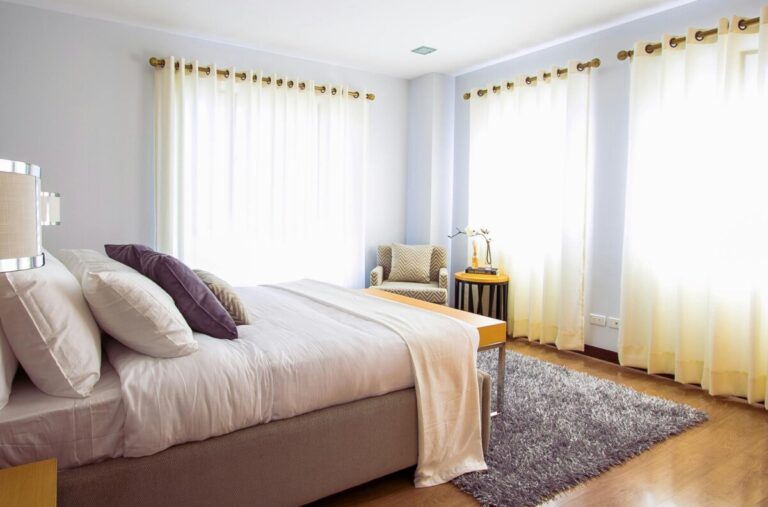For many Australians living with disability, Supported Independent Living (SIL) opens the door to greater freedom, dignity, and empowerment. Choosing the right SIL accommodation isn’t just about a place to stay—it’s about building a life where individuals can thrive with the right support, care, and community connection. With a growing range of SIL housing options for people with disabilities, it’s essential to understand what to look for to ensure long-term success and well-being.
This blog explores the benefits of SIL housing, how it promotes community integration, and how to find the right provider to suit your needs and aspirations.
What Is SIL Housing?
SIL housing, or Supported Independent Living, is a type of NDIS-funded support designed to help people with disabilities live more independently. SIL is provided in a shared living environment (group home) or in a single-occupancy dwelling, where day-to-day assistance is delivered based on the individual’s needs.
SIL is different from Specialist Disability Accommodation (SDA), which refers to the physical building. SIL refers to the support provided in that home.
Support can include help with:
- Cooking and meal planning
- Household cleaning and maintenance
- Personal care and grooming
- Medication management
- Social skill development
- Daily routine and scheduling
NDIS participants who are eligible for SIL funding typically require 24/7 support or frequent assistance with personal and/or community activities.
SIL homes are about more than care—they’re about creating a stable and nurturing environment where individuals can learn, grow, and contribute. Learn more about the Supported Independent Living benefits and services.
How SIL Housing Provides Greater Independence
One of the core goals of Supported Independent Living under the NDIS is to enhance autonomy and reduce reliance on family or hospital settings. With the right structure and routine, individuals are empowered to make choices, develop skills, and manage more of their lives independently.
Key benefits of SIL accommodation include:
- Tailored support based on individual goals
- Personal development in life skills like budgeting, hygiene, or cooking
- Empowerment to contribute to household decisions
- Confidence building through positive daily routines
Also, the current NDIS reforms are also emphasising quality assurance and outcome-based support, meaning more personalised and impactful support solutions. Explore our NDIS-aligned services
The Social Benefits of SIL Housing
Social interaction is critical for emotional and mental well-being, especially for individuals who may otherwise experience isolation. SIL housing options are designed to offer not only physical care but also opportunities for rich social engagement.
Common social benefits include:
- Building friendships with housemates
- Participating in shared meals and celebrations
- Engaging in hobby groups and outings
- Developing communication skills
SIL housing also highlights how meaningful peer relationships in SIL settings contribute to a sense of belonging and reduced loneliness.
Some SIL homes also offer structured social programs, such as:
- Group cooking nights
- Art therapy sessions
- Weekend outings to local events
- Volunteer or employment pathway support
These connections can lead to deeper community participation, enhancing both confidence and quality of life.
SIL Housing and Community Integration
Community integration in SIL housing is one of the most transformative aspects of supported living. Rather than being isolated in medical or institutional environments, individuals in SIL are encouraged to be active, valued members of their community.
SIL encourages participation through:
- Employment support and job-readiness programs
- Volunteering opportunities with local charities
- Access to education and skill-building courses
- Inclusion in social and cultural activities
- Using public transport independently
In line with the NDIS Provider Guidance, SIL service providers are encouraged to promote inclusion by helping participants set and work toward their personal life goals in a real-world context.
“ Community integration is not just about being present—it’s about participating, contributing, and being valued.”
Finding the Right SIL Housing Provider for You
Choosing independent living solutions is a critical decision that affects every aspect of an individual’s daily life. It’s not just about finding a vacancy—it’s about ensuring the provider aligns with the individual’s values, culture, support needs, and long-term aspirations.
Consider the following when comparing SIL providers:
- Do they offer person-centred care plans?
- Are support staff trained and trauma-informed?
- How is family involvement handled?
- What does their communication process look like?
- Are they NDIS registered and compliant with current standards?
- Do they encourage participant voice and choice?
People of Peony recommends speaking directly to support staff, visiting the home if possible, and understanding the provider’s policies before committing.
Red Flags to Watch For:
- Poor staff-to-resident ratios
- Limited information about daily routines
- Lack of transparency in communication
- No evidence of individualised care planning
The Role of Families and Carers in SIL Decisions
While SIL promotes independence, families and carers still play an important role in supporting individuals through the transition. From helping explore options to offering emotional support during the adjustment phase, their involvement can make a big difference.
Tips for family support:
- Attend home visits and ask detailed questions
- Discuss transition plans with the provider and participant
- Stay involved in progress reviews and planning sessions
- Encourage and celebrate small wins in independence
Family members should also familiarise themselves with NDIS policies and expectations for SIL, including how service delivery is monitored and what rights participants have.
Future Trends in SIL and the NDIS
The landscape of Supported Independent Living in Australia is evolving. The future trends include:
- More customised housing models, such as smart homes with assistive technology
- Increased focus on mental health integration
- Stronger regulatory compliance and service quality monitoring
- Greater demand for culturally inclusive housing models for CALD and Indigenous participants
These trends signal a positive shift toward more responsive, inclusive, and forward-thinking SIL models. As more participants enter the NDIS, the need for reliable, compassionate disability housing support through trusted SIL housing providers continues to grow.
At People of Peony, we’re committed to offering flexible, person-centred solutions that reflect the diversity of our community.
The Importance of Quality SIL Housing in Supporting Independent Living
The right SIL accommodation can be life-changing. It’s about far more than support—it’s about freedom, connection, and living on your own terms.
Whether you’re a participant, family member, or support coordinator, understanding your options and choosing a reputable provider is key to achieving meaningful, long-term outcomes.
At People of Peony, we are passionate about helping individuals thrive in their chosen SIL homes. Our dedicated team works closely with participants to ensure their needs, goals, and preferences are not just heard, but prioritised.
Contact People of Peony to learn how we can support your SIL journey





